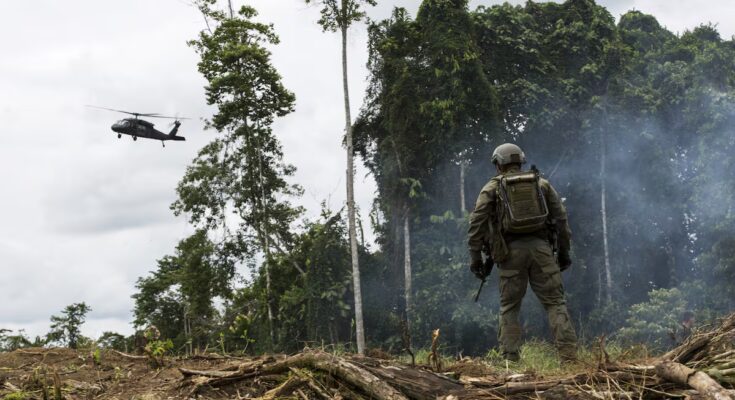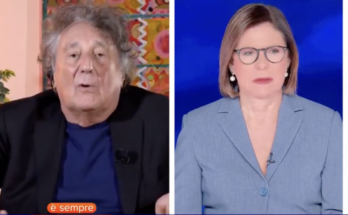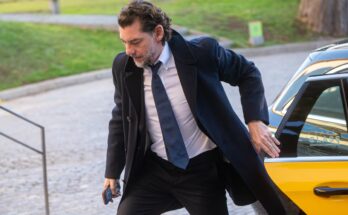It was Saturday November 15th. Colombia had been mired for two days in the biggest human rights scandal of Gustavo Petro’s government, when it became known that the Aerospace Force had bombed a dissident camp of the extinct FARC where seven minors forcibly recruited in the department of Guaviare were staying. While the country was discussing numbers, orders and responsibilities in Bogota, in the rural area of Buenos Aires (Cauca), Sharol Valeria Mosquera, a 15-year-old minor, was shot dead in the middle of a land and air military operation.
The official police report on the operation indicates that the attack targeted Jhon James Ararat, alias Poisonwho military intelligence identified as the finance chief of the Jaime Martínez front, a dissident group that has hit southwestern Colombia hard and is part of the so-called Central General Staff, led by Ivan Mordisco. It was an operation coordinated by the Police, the Aerospace Force and the Search Block, a unit that includes the Army and the Police and focuses on dismantling the groups operating in the corridor that goes from Jamundí (in the south of the Cauca valley, a few kilometers from Cali) to the north of Cauca, where it connects with the roads leading to the Pacific Ocean. The family of Sharol Valeria Mosquera, says a relative who requested anonymity for security reasons and confirms her death, had lost track of the girl since March this year, when she was recruited by dissidents. “I was 14 then. That same day, two other girls of the same age left,” she says, alluding to one of the many cases of child recruitment that occur in the region.
Marcial Quiñonez, lawyer for the Legal and Charity Foundation for Peace (Fubejupaz), claims that the minor’s death “was not recorded in the records because the authorities did not recognize her as one of the minors killed in official operations.” This despite the fact that, as he himself says, “his body was identified by forensic medicine in Cali, where it was transferred together with the killed man”. This newspaper consulted the police, the air force and the prosecutor’s office to find out if there were other victims in the operation or if they recognized the minor’s name as one of the people killed in the operation. No one has confirmed or denied the fact.
The case did not go unnoticed at the Marilópez educational institution, in the village of Bellavista, in the neighboring municipality of Suárez. Although the school and family knew about the recruitment, fear of retaliation and threats prevented anyone from reporting it to the Prosecutor’s Office or the Ombudsman’s Office. The last information the family had on her was that she was still in the early stages of “training” into the dissident Jaime Martínez. In Cauca, the National Movement of Women and Mothers for Peace has warned of the existence of at least two indoctrination “schools” for minors, where their entry into the ranks is “formalized”. There, armed groups pressure them to sign “contracts” in which they try to affirm that the recruitment was not forced and leave a presumed trace of consent.
The official report of the operation indicates that it took place on the road that connects the municipality of El Porvenir with Timba. It was 3.30 in the afternoon when the shots from a helicopter started. According to two witnesses present in the area, the minor was hit by bullets a few meters from the point where Veneno fell. The police, so far, have only reported the death of what became Ivan Mordisco’s second most powerful man in Cauca. The murdered minor, however, was not even registered as a victim. This newspaper consulted the institution’s communications office on the case, but the latter said it had no further information.
The Institute of Forensic Medicine reported on November 17 that it had identified the deaths of 15 minors in military operations between August and November this year. Among the cases registered are three children killed in an operation on August 26 in Guaviare; four other minors in Puerto Santander (Amazonas) on 1 October; seven children due to the November 13 attack in Calamar (Guaviare) and a minor who died the same day in an operation in Puerto Rondón (Arauca). Sharol Valeria Mosquera was not in the register.
Forced recruitment has worsened in Colombia over the past two years. However, authorities’ figures on this crime differ: the Ombudsman’s Office documented only 21 cases in the first half of the year, while a report from the Special Jurisdiction for Peace documented 140 cases between January and April this year. Cauca is, in fact, the epicenter of this crime. In the first four months of the year, the Prosecutor’s Office received 800 complaints of child recruitment in that area, one of the most conflict-ridden regions in a country that is seeing an increase in organized violence. A leader in the area, who knows and documents cases of recruitment, explains that minors are taken mainly through falling in love and false promises. “This week a 16-year-old boy, who I cannot name, came to the school where I worked to tell me that they would watch him day and night because there were many toads there,” he explains.
From these institutions they usually leave for indoctrination centers, colleges where they are taught the military doctrine of the illegal group. “As the supposed levels they have there increase, they change their uniform. We have seen that those who are close to leaving or graduating as fighters are dressed in blue, not green,” he explains. After passing through, the traces of the children and adolescents become vague and the families have no clear way to know if they are still alive, if they have been displaced or if they have participated in armed operations. “Most are taken to other departments, so that parents or authorities do not find them,” explains the human rights defender.
The deaths of minors in operations against dissident groups have presented Gustavo Petro’s government with one of the biggest challenges to its security and human rights agenda. In the first years of his mandate, with the criminal lawyer Ivan Velásquez minister of Defense, the leader of the left stopped the attacks, precisely to avoid this risk. One year after the reactivation of these operations, the Executive insists that in all cases the protocols of international humanitarian law have been respected. Every minor killed in military operations demonstrates once again the institutional fragility in the face of forced recruitment. Colombia is, once again, faced with an inability to keep children away from war and stop cycles of violence.



